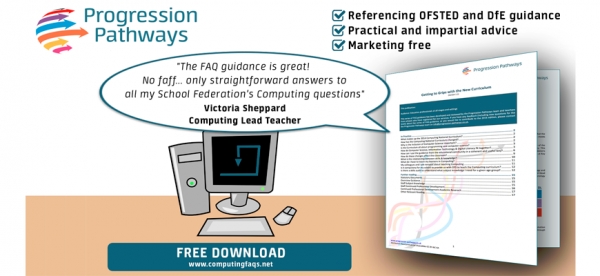“Listening to friends and colleagues in the Computing educational community, there seems to be a growing gulf in those schools effectively managing the transition from ICT to Computing and those still yet to get started,” said chief educational officer and co-founder Mark Dorling. “Despite a range of guidance documents and national initiatives, there is a feeling amongst many school leaders and their Computing leaders of not knowing how to get started.
“However, anecdotal feedback from those teachers who are making the transition to Computing in their schools suggests that they are embracing and enjoying the changes to the curriculum, moving forwards the key is going to be to capturing and sharing some of these approaches with the community.”
The Progression Pathways team has also been sharing their expertise by delivering guest lectures at, and running workshops for, a number of Initial Teacher Training (ITT) providers, Local Education Authorities (LEA) and their local partner schools.
Mark added: “There is some wonderful work being done by the Computing educational community to help demystify the changes for teachers. From my own experience, there is some absolutely fantastic voluntary and paid-for work being done by teachers, university and commercial training providers and publishers, all offering a breadth and depth of training, certification and publications to support teachers, but many are struggling with attendee numbers.
“Listening to school leaders, many suggest that Computing is still a low priority in their school development plans, owing to a variety of reasons including the heavy focus on Literacy and Maths, but also to major changes in assessment and the Ofsted Inspection Handbook. Changes to school funding formulas creating budget uncertainty (which naturally have an impact on CPD and lesson cover budgets) combined with school leaders not having grasped how much the curriculum has changed, are also factors.”
The Progression Pathways Computing FAQs contain examples of how other schools have answered the question with quotes to the official guidance (by document name, page and paragraph numbers) from Ofsted, Department for Education and Computing educational community to give school leaders and Computing leads confidence in understanding their starting point and identify what aspects of the school’s Computing provision to tackle first then know what questions to be asking when developing their own solution.
Visit www.progression-pathways.co.uk or contact [email protected] for more information.


















